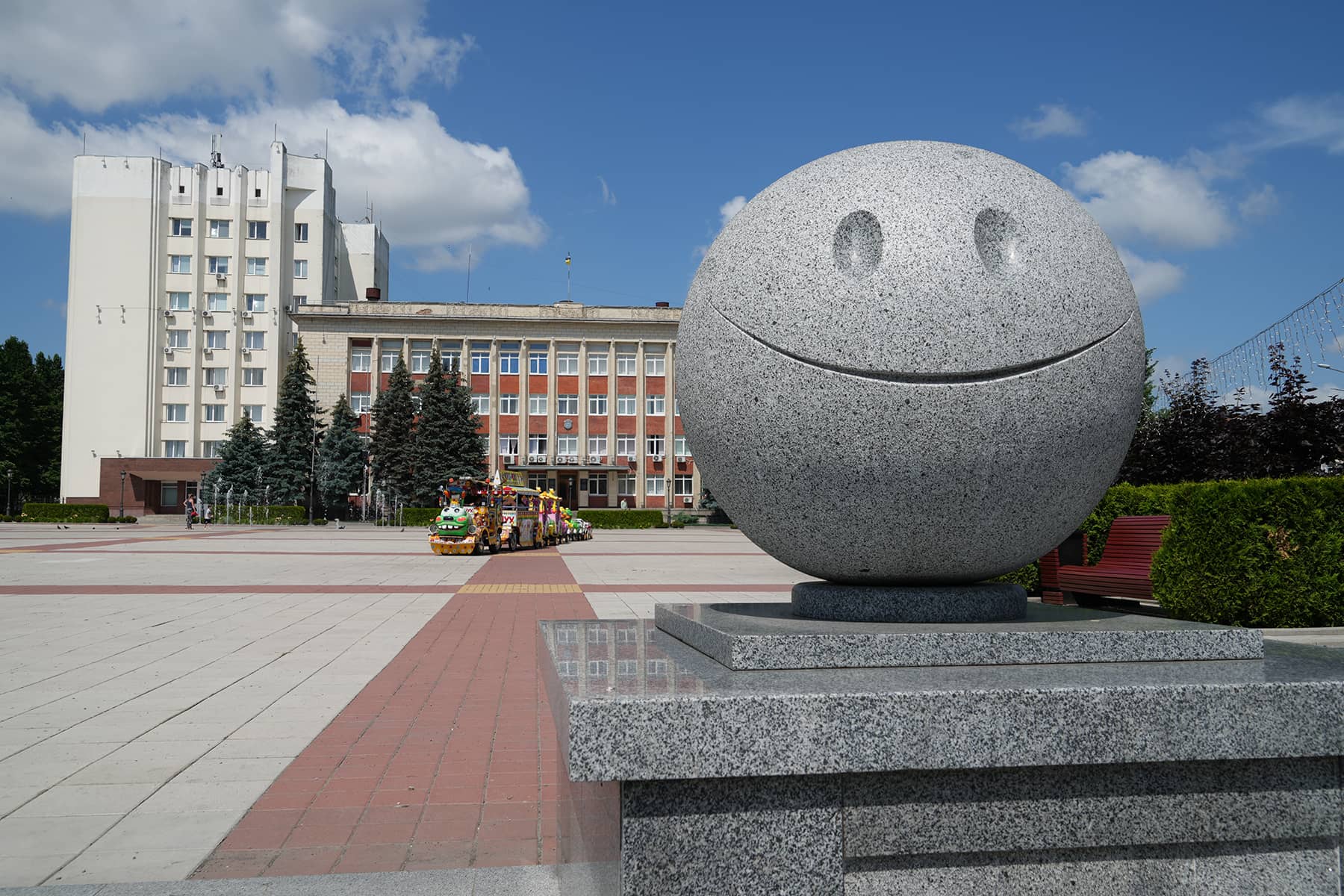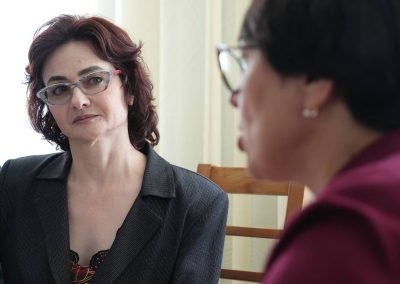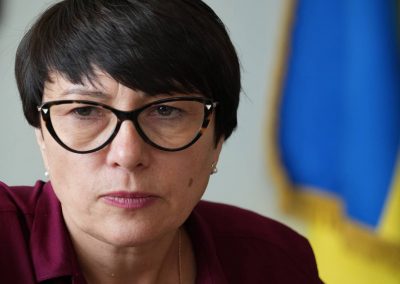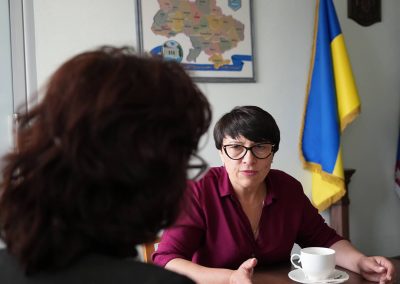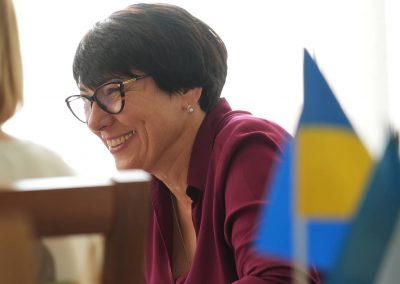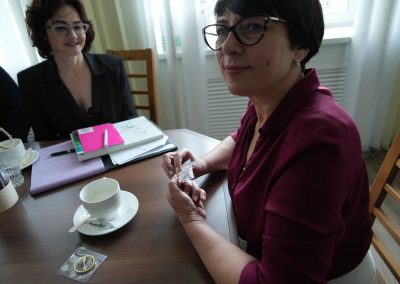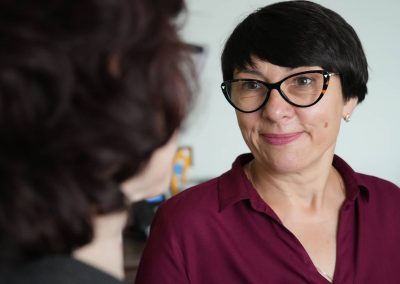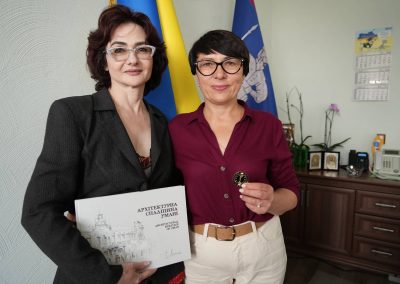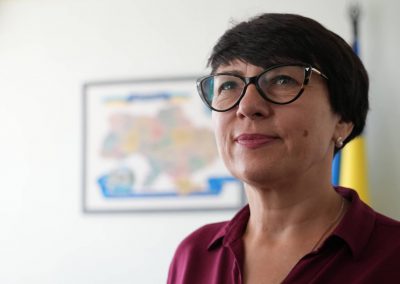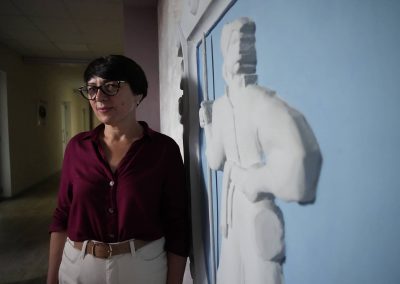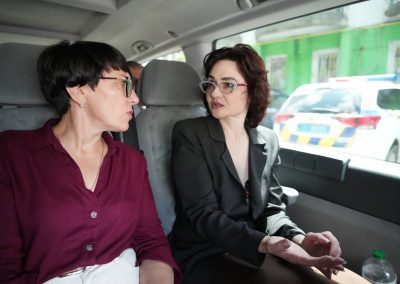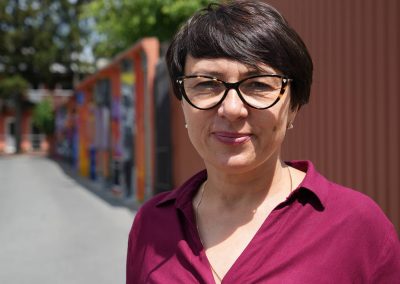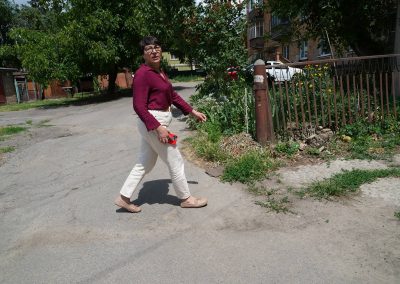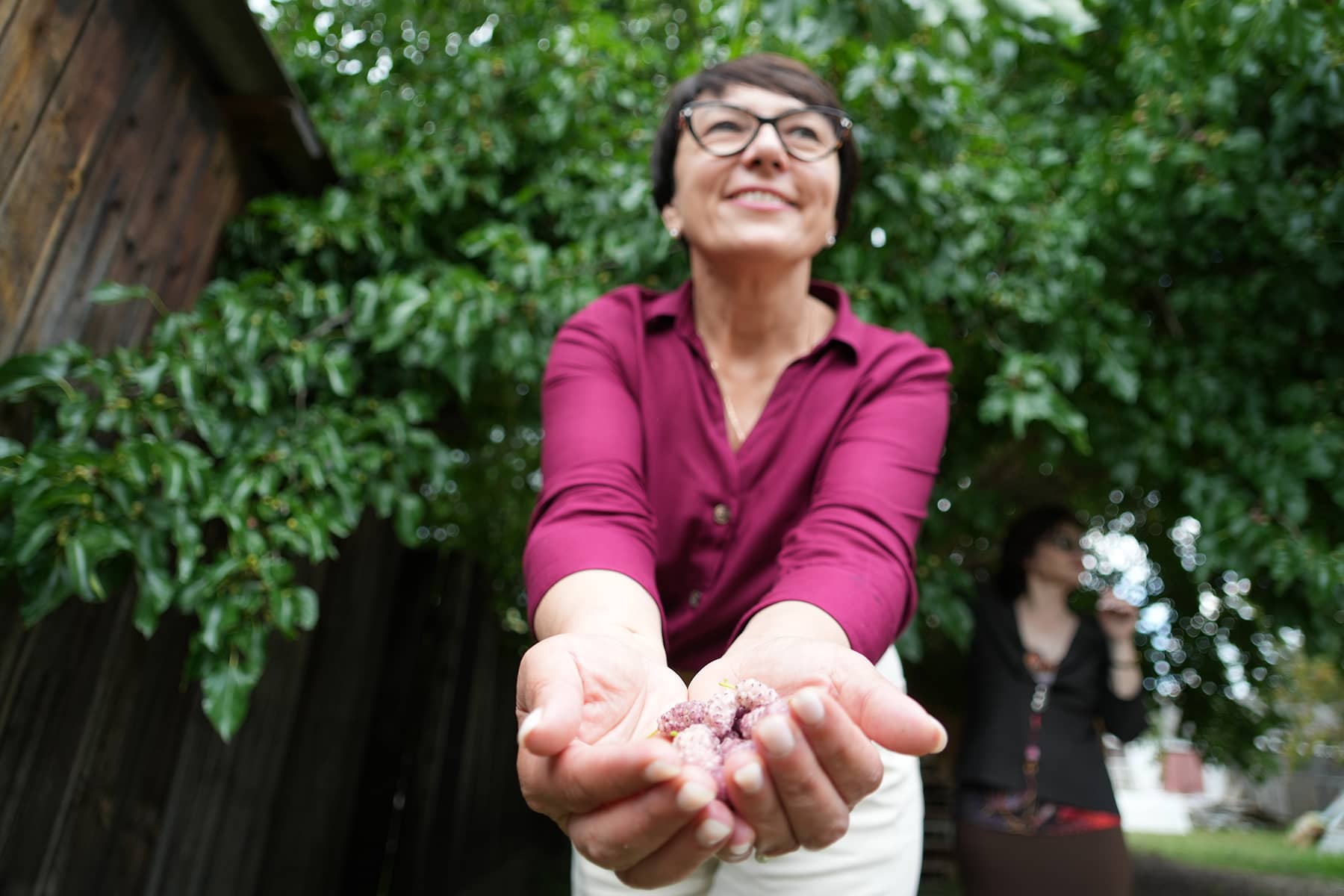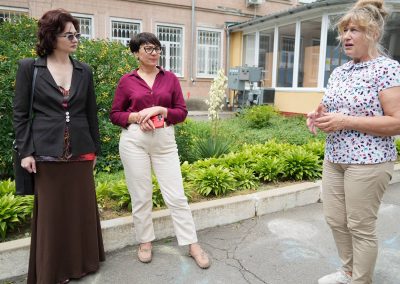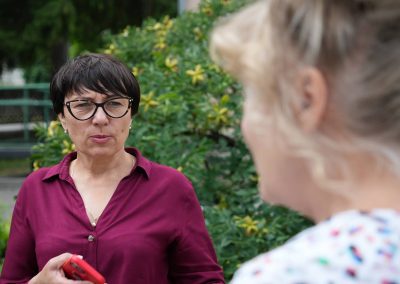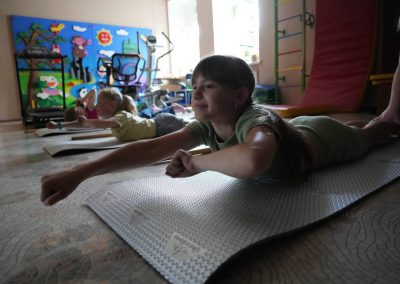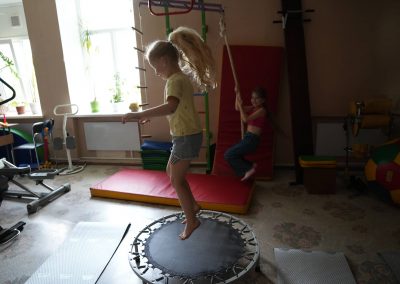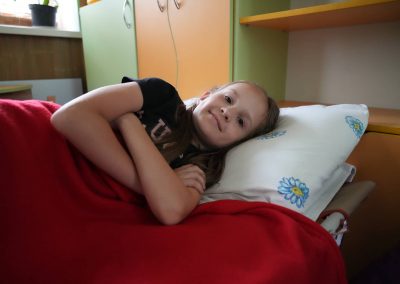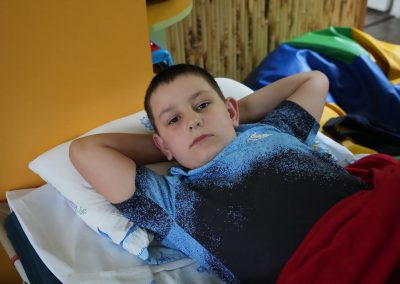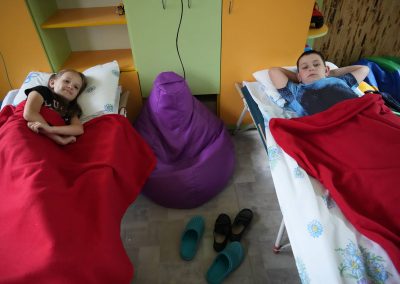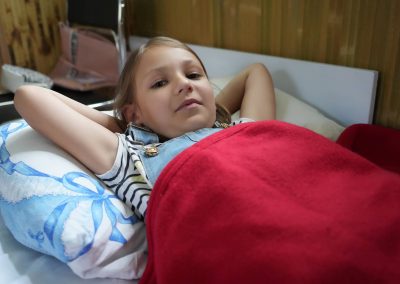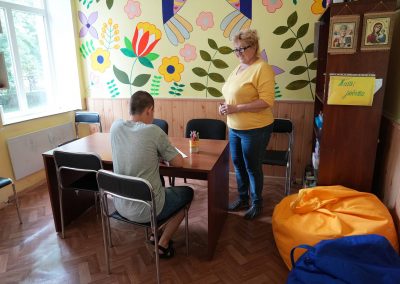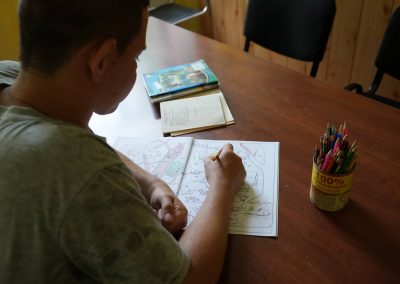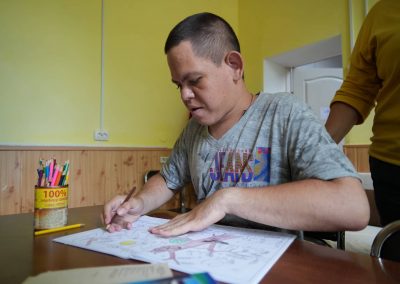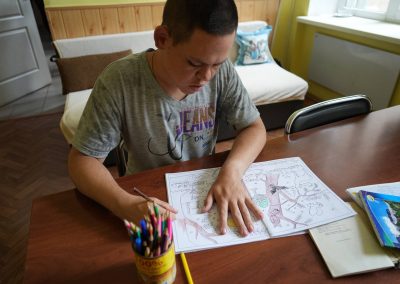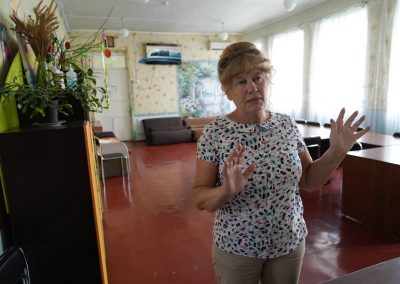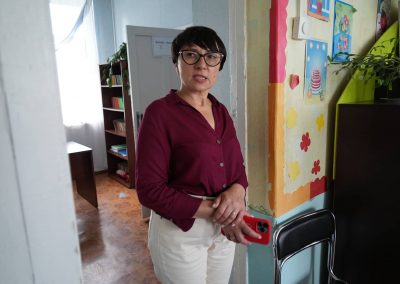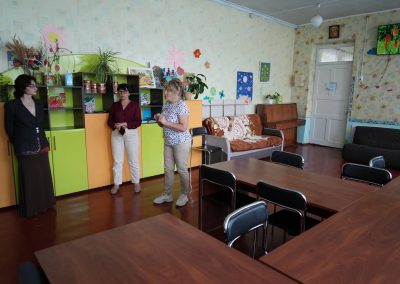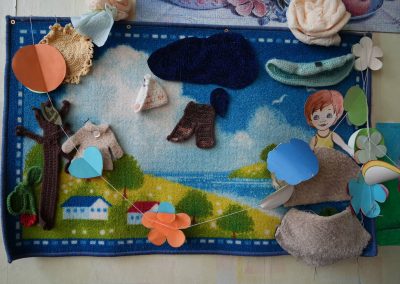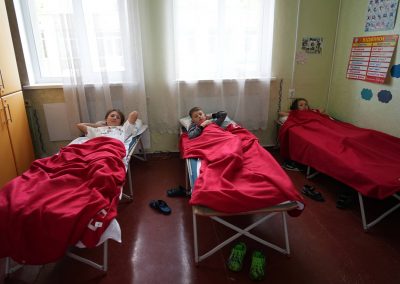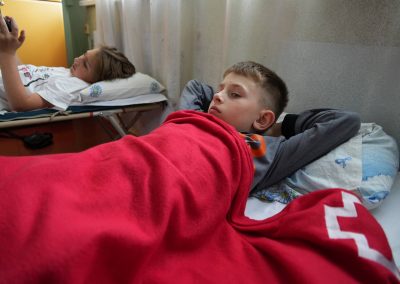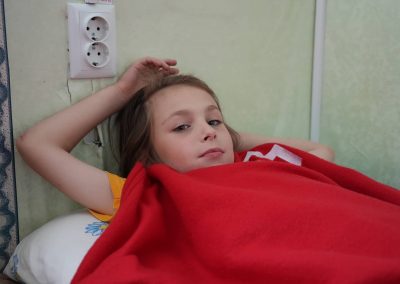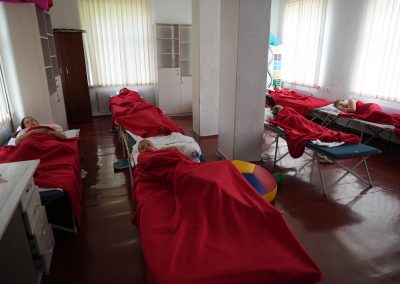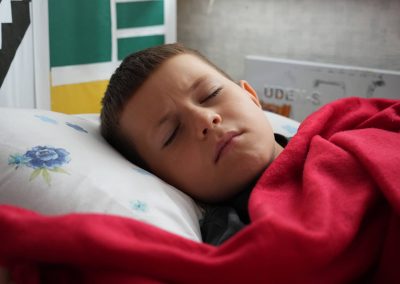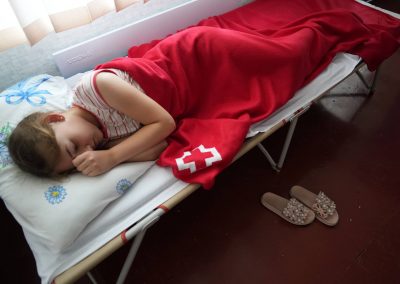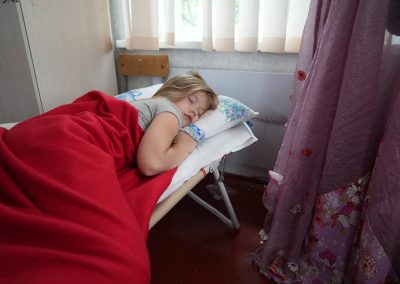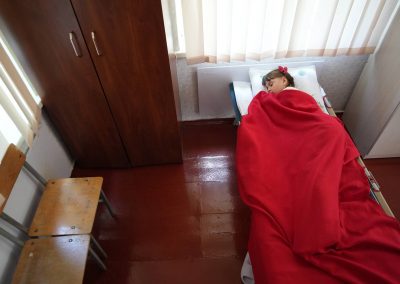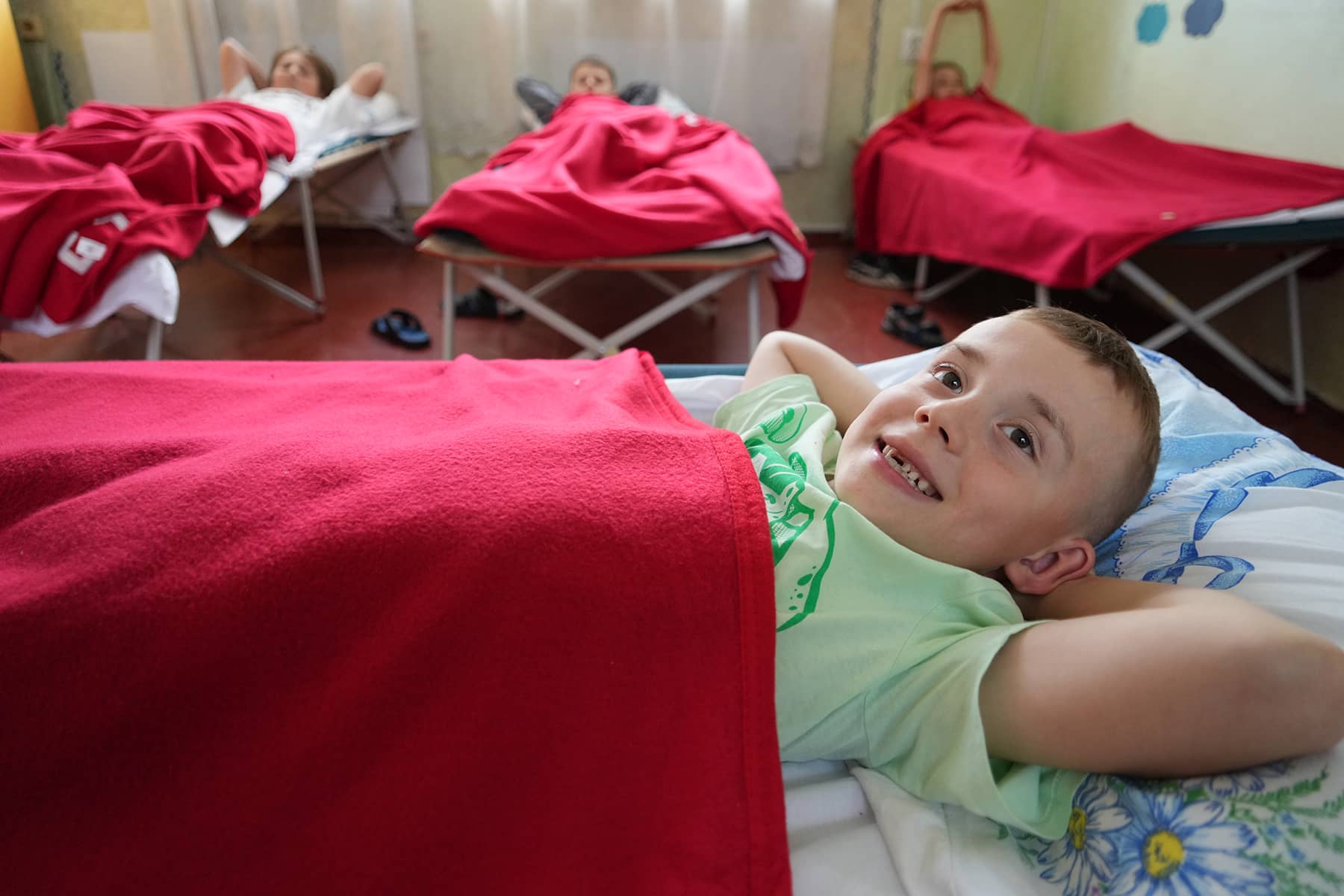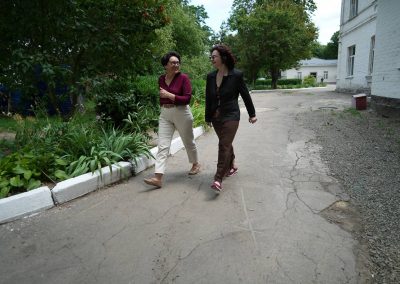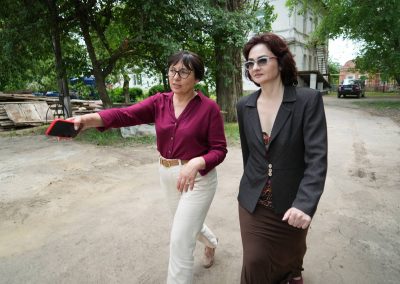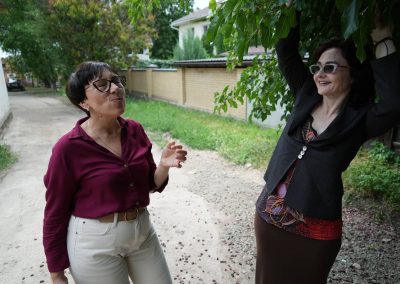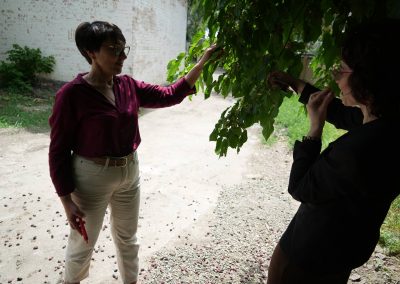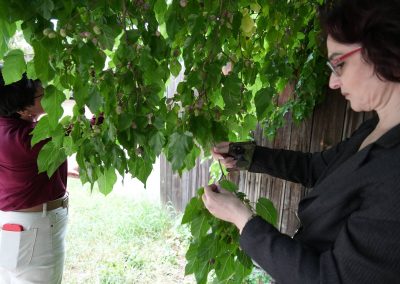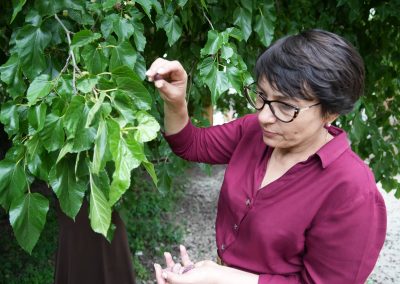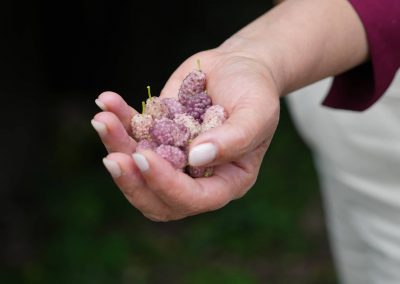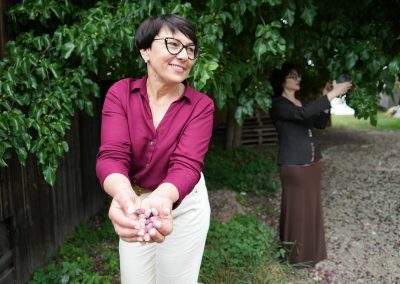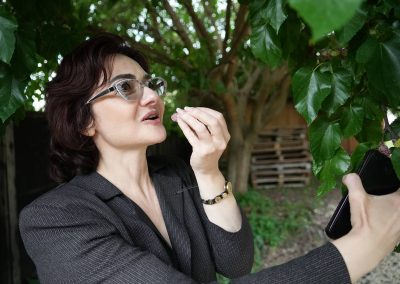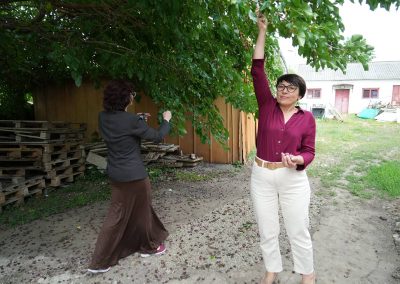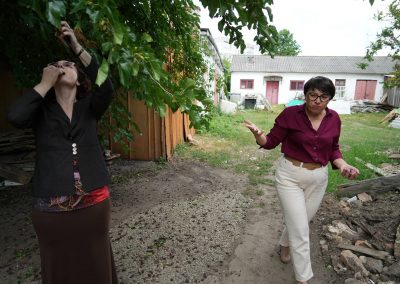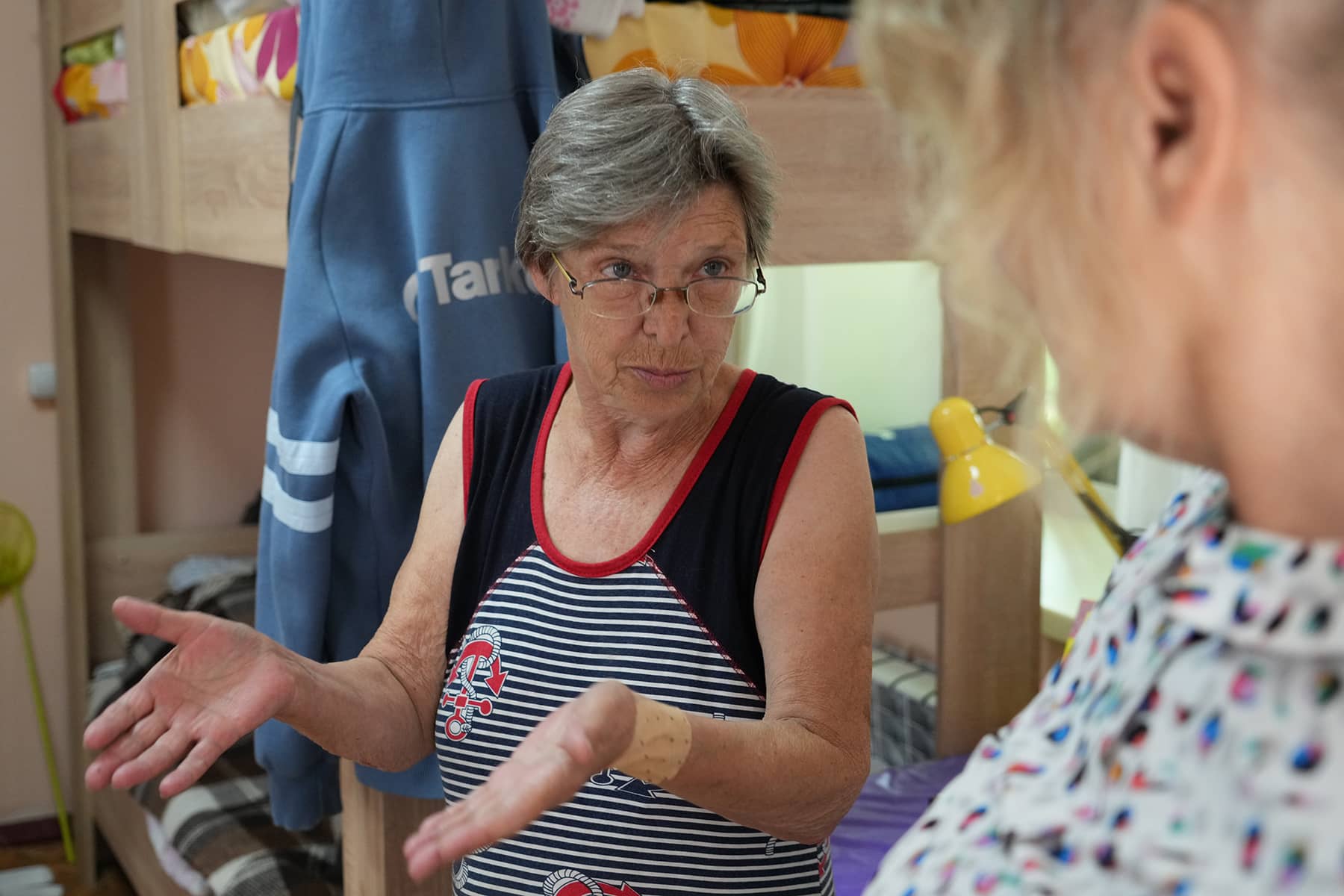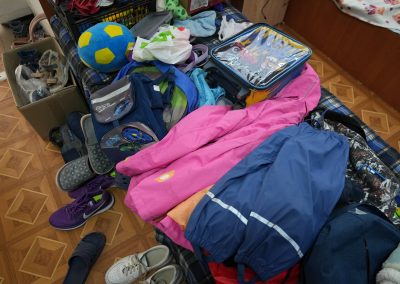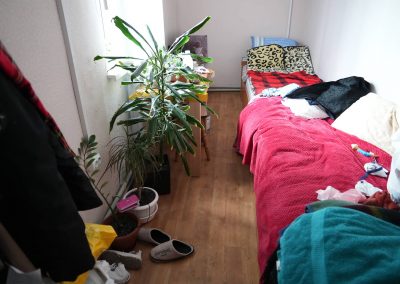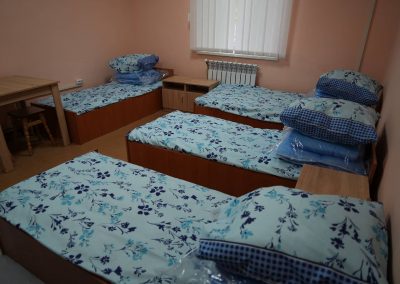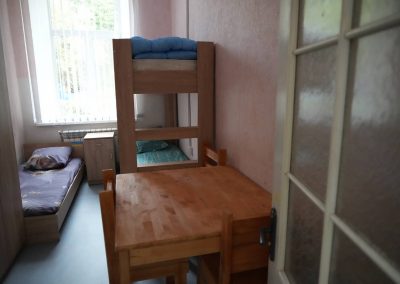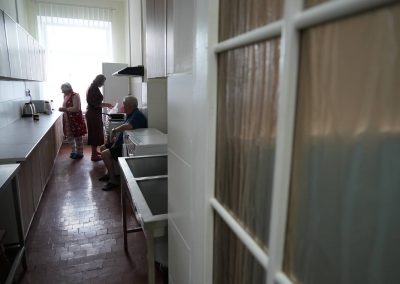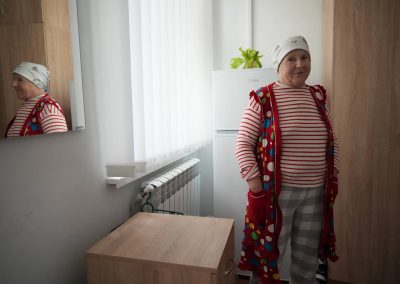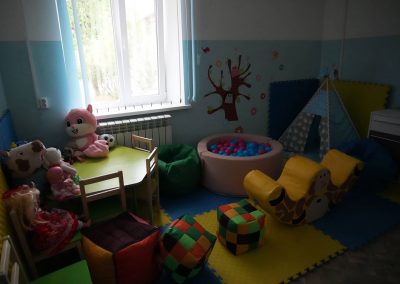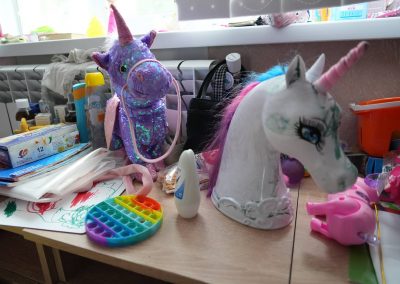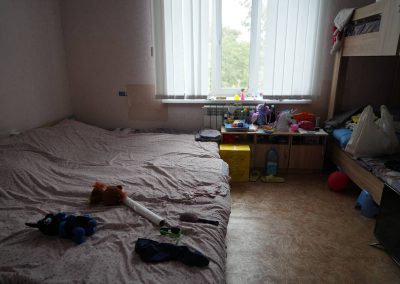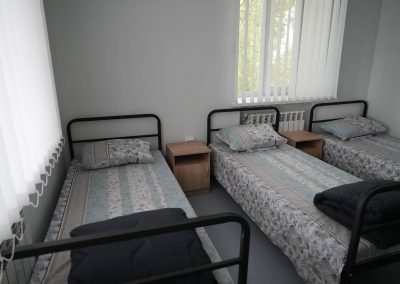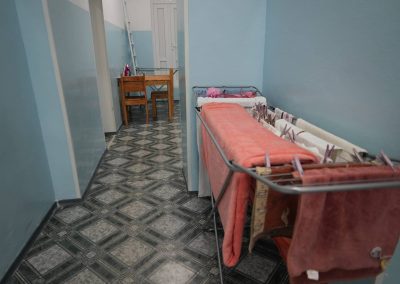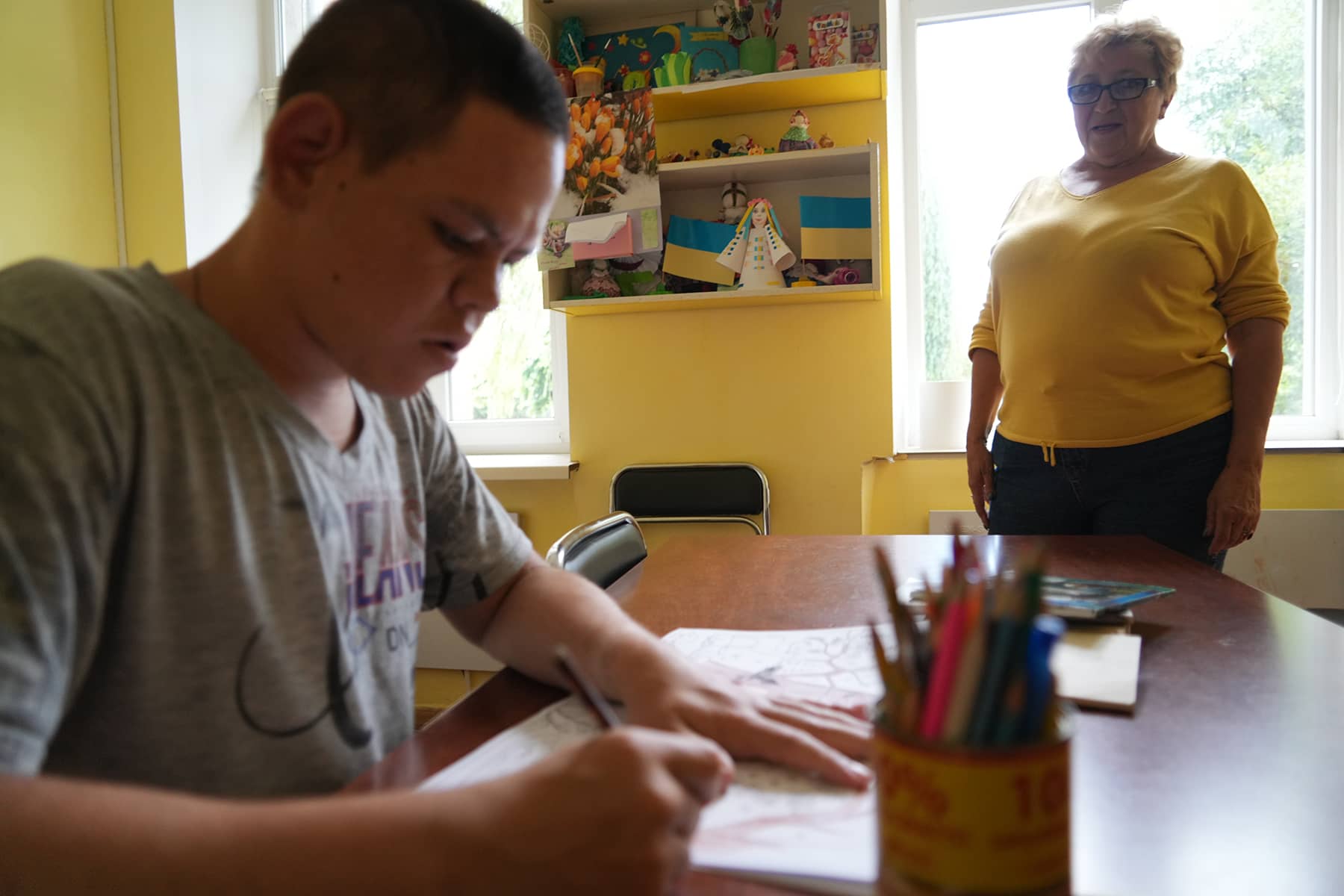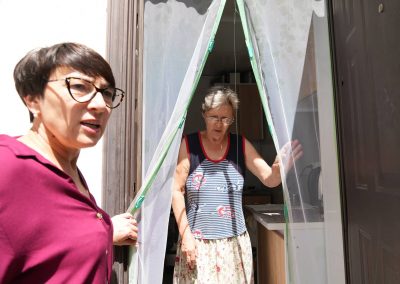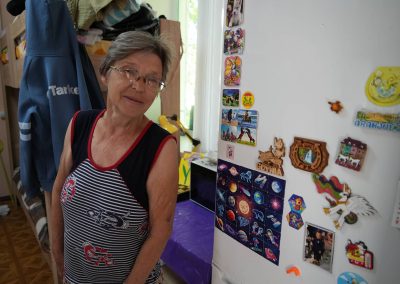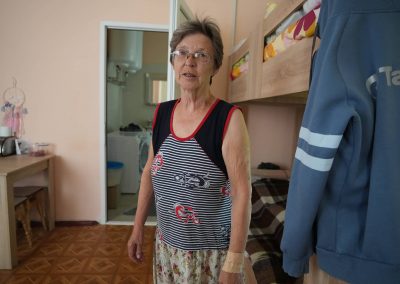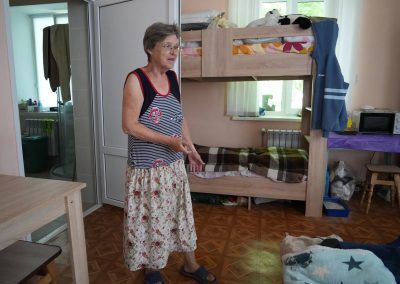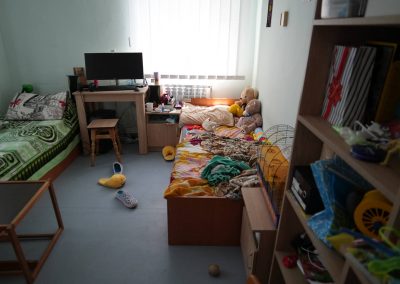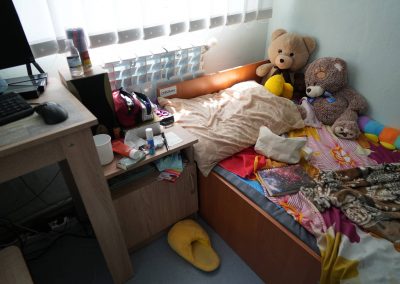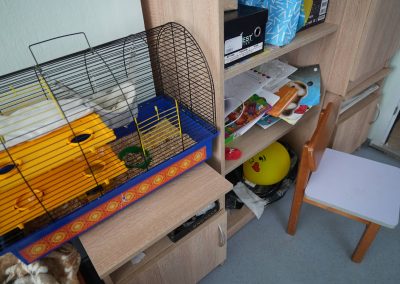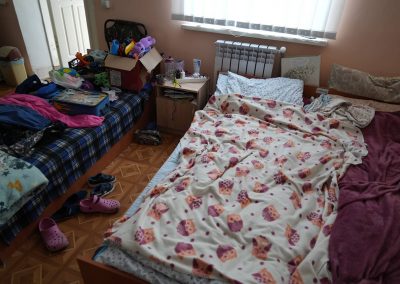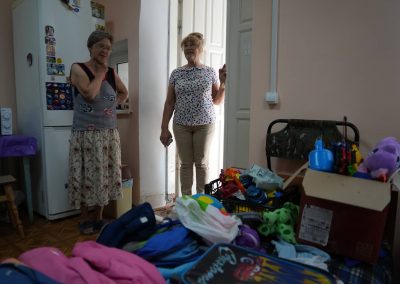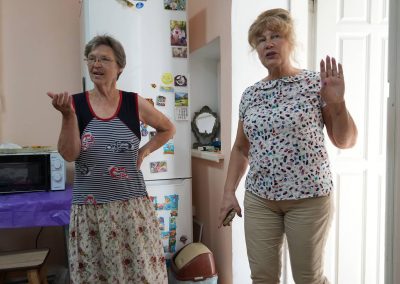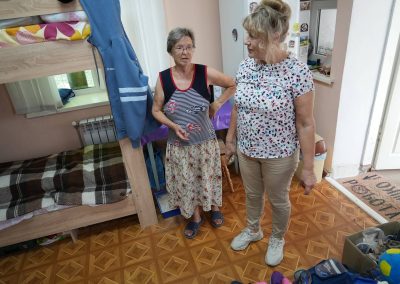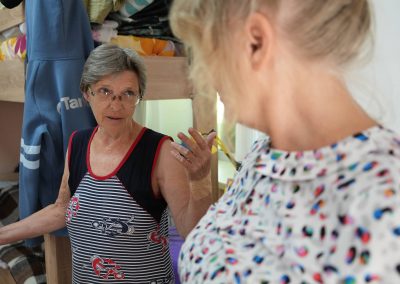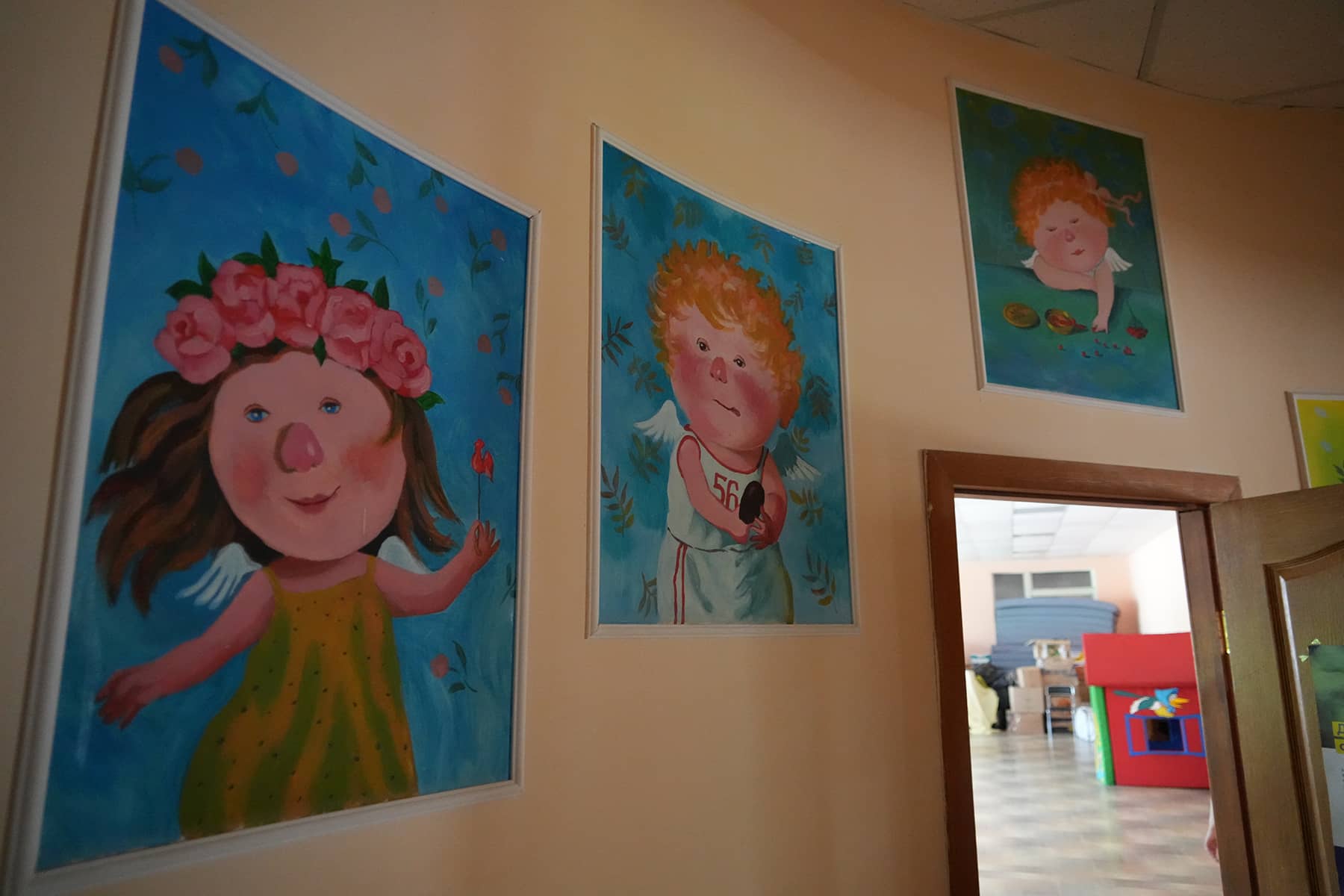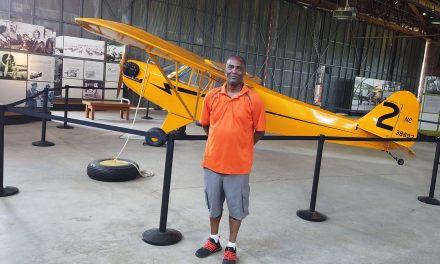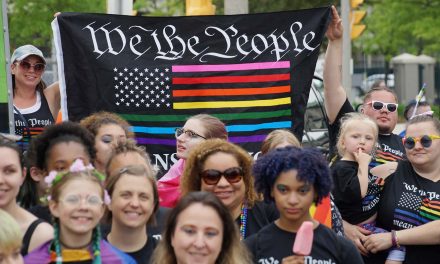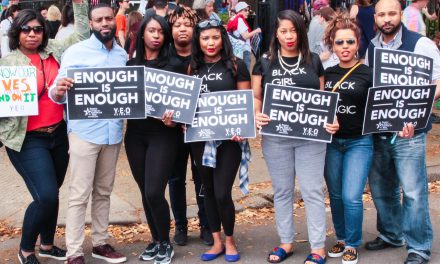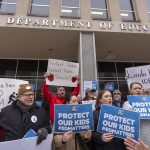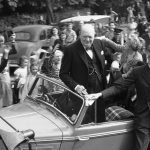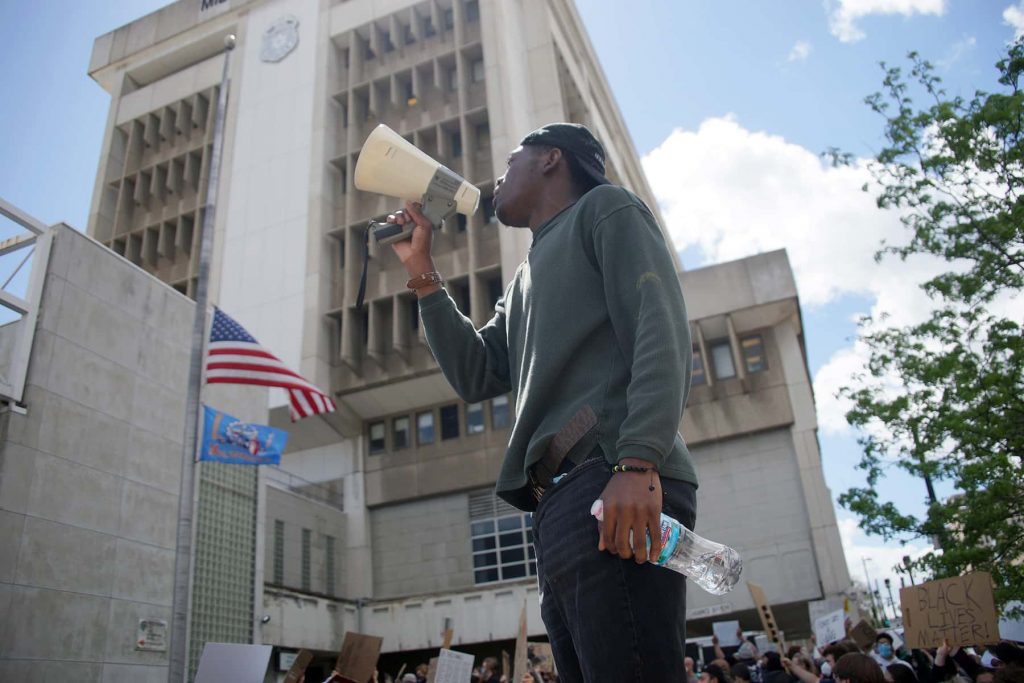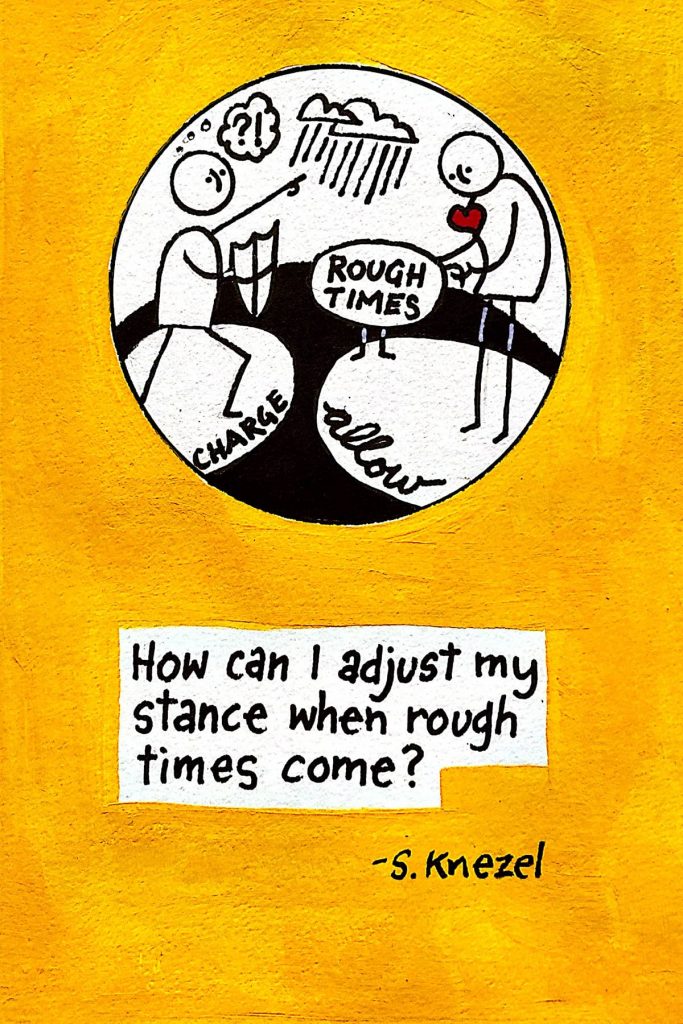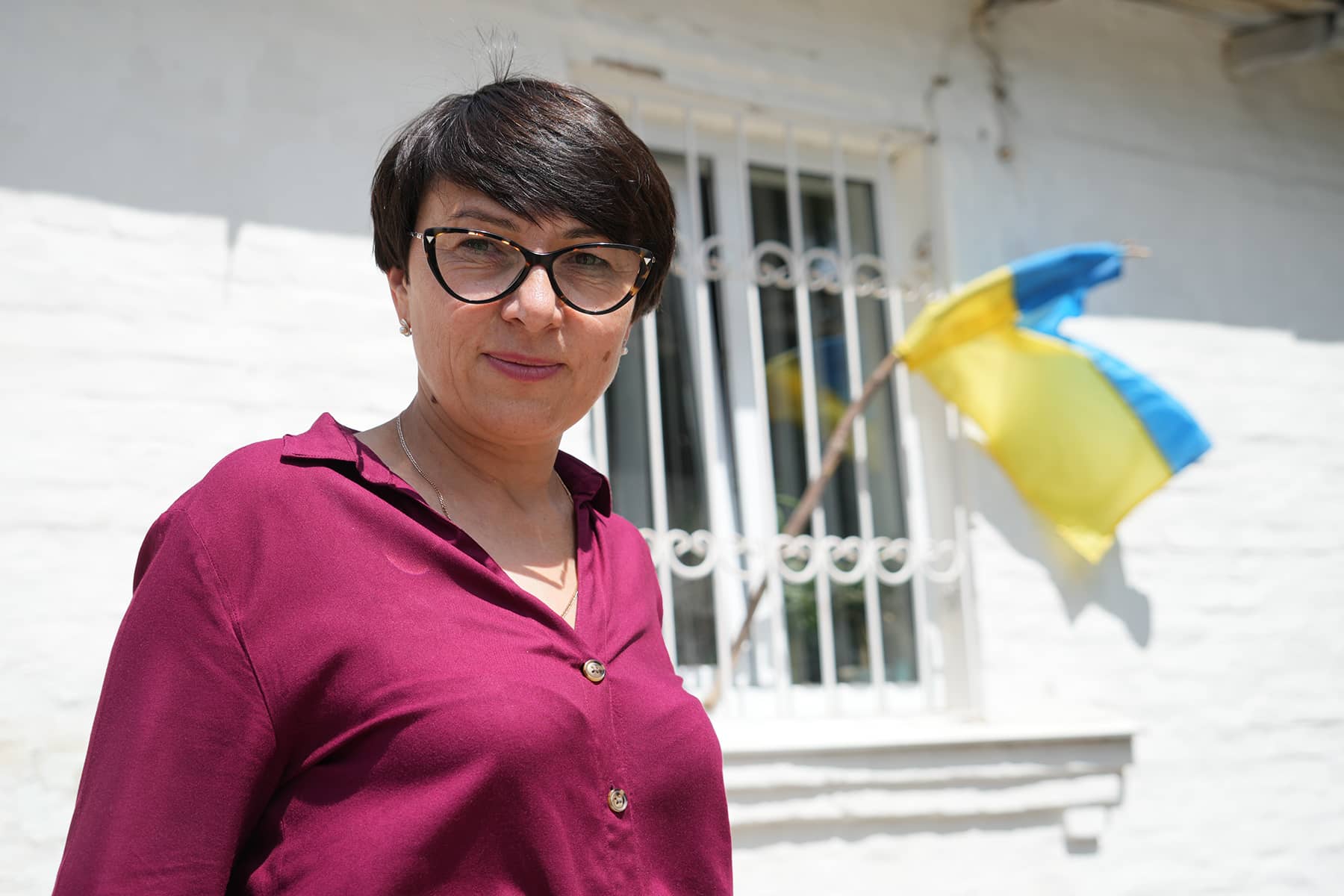
In the first few months after Russia launched the brutal full-scale invasion of Ukraine, an estimated 127,000 internally displaced people found temporary refuge in the city of Uman as they fled to safety further away from the carnage.
Located in central Ukraine’s Cherkasy Oblast to the east of the historical region of Podolia, Uman is known for its large Jewish community and the annual Rosh Hashana pilgrimage to the burial site of Rebbe Nachman of Breslov.
After Russian forces attacked Ukraine along multiple fronts in February of 2022, Uman found itself at a strategic intersection. It became a major corridor away from the frontlines that could route traffic from different directions, as tens of thousands of Ukrainians escaped the indiscriminate bombing used by the invaders to flatten their homes.
As families tried to flee the Russian slaughter, Uman served as a transit hub that saw as many as 13,000 internally displaced people arrive each day. The city already had the capacity to hold between 30,000 to 50,000 visitors.
“It was fortunate that Uman has a lot of Jewish hotels and Jewish housing spaces available, because of the Rosh Hashanah pilgrimage,” said Iryna Pletnyova, Mayor of Uman. “So when the worst started and all these internally displaced people came to Uman – about 30,000 at any given point – we could organize places for the refugees to live until they moved on.”
The Mayor has worked closely with the Uman’s Jewish community, and has been thankful for their contributions. Jewish leaders volunteered resources that assisted the city administration in figuring out ways to shelter and feed the daily influx of people. The Milwaukee-based humanitarian nonprofit Friends of Be an Angel was also credited for its participation in the process.
“We organized food resources together with the Women’s Movement for the Future to deliver fruits and vegetables, dairy products, and a lot of paper plates,” said Anya Verkhovskaya, director of Friends of Be an Angel. “There were so many people to feed on a daily basis, we needed a lot of paper plates.”
In addition to feeding and housing demands, many of the refugees required medical attention for wounds inflicted by Russian cluster munitions. Mayor Pletnyova and city authorities worked around the clock to provide urgent care. There was also a large population of disabled individuals, the elderly, and children who all needed less immediate but still constant care.
When the Friends of Be an Angel delegation arrived in Uman on June 30, Mayor Pletnyova and city officials gave Verkhovskaya and her team a tour of housing centers, medical facilities, schools, and special programs to care for children.
“They’ve been receiving help from a variety of volunteers and organizations like UNICEF,” said Verkhovskaya. “They were able to build bomb shelters and a Children’s Center. Even during a time of uncertainty, Mayor Pletnyova wanted to do as much as possible to provide some normalcy for the displaced children.”
Within a day or two of their arrival, little children could attend kindergartens to continue their learning, even though it was very temporary. Most people who came through Uman did not stay there for a long time. But Mayor Pletnyova and her administration wanted to make sure that the children had a daily routine, so schooling was made a priority.
Verkhovskaya also recalled one of her favorite moments from the visit to Uman. It was while members of her delegation were walking ahead in a construction area being cleared for more temporary housing.
“Suddenly Mayor Pletnyova turned to me and said ‘Let’s run away and pick berries from a tree.’ It was a mulberry tree, with black and white berries. She took my hand and we ran to it,” said Verkhovskaya.
The large mulberry tree had survived a rocket attack that damaged the area nearby. And in its shade, the two women enjoyed a moment of joy amid all the ruin as they picked and ate berries.
Afterward, the delegation visited a military hospital, where Mayor Pletnyova and Verkhovskaya spoke with soldiers recovering from their wounds. One patient had metal rods extending around his arm to keep shattered bones in place.
“With all this metal, my arm serves as a TV antenna for everybody in our room,” the soldier joked. “I know it is not something to laugh about, but if we don’t hold onto our humor then the enemy wins. They can break my body, but they can’t break my heart.”
The Children’s Center in Uman has an autistic program for local youth, and offers different types of therapy for children. Seeing the need early in the war, the Center began working with children to ease their trauma. When the Milwaukee delegation toured the facility, it was hosting a summer camp for local kids. The visit coincided with their nap time.
“The summer camp lets kids be kids. It is so important to provide them with a safe and comfortable environment,” said Mayor Pletnyova. “It also gives parents extra time for their own needs, or to focus on their work for the war effort.”
The city of Uman also created animal shelters for all the pets that the displaced people brought, or those stray animals that were left without owners.
Uman also benefited from a very supportive Sister City in California. Just west of Sacramento, the city of Davis has had a relationship with Uman since 1988.
“Davis was so kind to us. They sent us enough funds to buy a school bus, so we could move the internally displaced children and parents back and forth,” added Pletnyova. “The people of Davis also created a scholarship to fund sending students to the United States. We are so grateful for their help.”
The city of Davis also donated an ambulance and fire truck to Uman. In addition, they helped build a rehabilitation center and provided resources to repair war-damaged buildings.
On June 22, the South Korean government announced that it has decided to support the development of a smart city in Uman, as part of its “K-City Network” project. Created by the Ministry of Land, Infrastructure, and Transport, the global cooperation program aims to develop future-proof “smart cities” around the world.
Series: Return to Ukraine
- Return to Ukraine: A trauma loop of travel from Milwaukee to a country still at war a year later
- From Weddings to War: How Kostiantyn and Vlada Liberov photograph Ukraine's daily horrors
- Being Friends of Angels: The Milwaukee nonprofit saving lives and offering hope in Ukraine
- Mayors of Milwaukee and Irpin expand Sister City cooperation after visit by nonprofit delegation
- Interview with Tom Barrett: U.S. Ambassador to Luxembourg reflects on forging ties with Irpin
- Wisconsin Ukrainians host annual fundraising picnic to support homeland on 500th day of war
- Advanced Wireless to donate 840 access points to rebuild Irpin's citywide Wi-Fi network
- Children of Irpin begin planning mural for Mitchell Airport to showcase Sister City friendship
- Irpin is not forgotten: Residents thank Milwaukee Independent for reporting on their "Hero City"
- Milwaukee photojournalist on assignment in Kyiv during July 2 Russian drone strike targeting civilians
- Russian cruise missile attack kills residents far from front lines in Western Ukraine city of Lviv
- Ukraine arrests man accused of directing Russian ballistic missile strike on Kramatorsk pizza parlor
- Milwaukee offers Ukrainian refugee family life-saving treatment for son's genetic condition
- Nikita Pirnach: Irpin student hopes to help his country after finishing education in Milwaukee
- Sick children wait for overseas medical treatments as a new generation is born in Ukraine during war
- Iryna Suslova: The superwoman saving Ukrainian children abducted by Russia
- How a group of Ukrainian mothers, wives, and daughters are distributing vital humanitarian aid
- Freeing Freddie: Educational program aims to reduce PTSD for Ukraine's war-weary children
- The trauma of living: When being killed is the preferred choice to being disfigured from battle
- President Zelenskyy offers gratitude and awards to wounded soldiers while visiting Lviv Hospital
- Former Vice President Mike Pence visits Irpin during unannounced campaign trip to Kyiv
- Military Hospitals provide vital care for Ukrainian soldiers in need of hope and healing
- Combat surgeons pioneer advances in maxillofacial reconstruction of Ukraine's injured heroes
- Milwaukee donors cover cost of reconstructive surgery for American volunteer wounded in battle
- In their own words: Listening to the Voices of Children talk about their experiences from war
- Traumatized by War: Children of Ukraine carry on after losing parents, homes, and innocence
- Widespread Torture: U.N. report documents Russia's systematic executions of Ukrainian civilians
- Wisconsin volunteers sort and pack donated medical supplies for use in Ukraine's hospitals
- Lviv warehouse serves as vital link in medical supply chain from Milwaukee to frontlines
- Aid from Milwaukee is providing internally displaced people in Ukraine with food and clothing
- Iryna Pletnyova: How the city of Uman transformed into a hub for refugees fleeing war
- Bombs in the night: Why children in Uman are still traumatized by Russia's missile attack
- School Bunkers: When a national flag becomes a memorial to dead Ukrainian students
- Hasidic life in Uman: A journey across Ukraine to the Tomb of Rabbi Nachman of Breslov
- Tetiana Storozhko: Being a witness to the history of Roma culture in Ukraine
- Remembering Oskar Schindler: A photojournalist’s diary from the streets of Jewish Kraków
Lее Mаtz
Milwaukee Independent has reported on Russia’s brutal full-scale invasion of Ukraine since it began on February 24, 2022. In May of 2022, Milwaukee Independent was the first news organization from Wisconsin to report from Milwaukee’s Sister City of Irpin after its liberation. That work has since been recognized with several awards for journalistic excellence. Between late June and early July of 2023, Milwaukee Independent staff returned to Ukraine for a second assignment to report on war after almost a year. The editorial team was embedded with a Milwaukee-based nonprofit, Friends of Be an Angel, on a humanitarian aid mission across Ukraine. For several weeks, Milwaukee Independent documented the delivery of medical supplies to military and civilian hospitals, and was a witness to historic events of the war as they unfolded.
Return to Ukraine: Reports about a humanitarian mission from Milwaukee after a year of war

